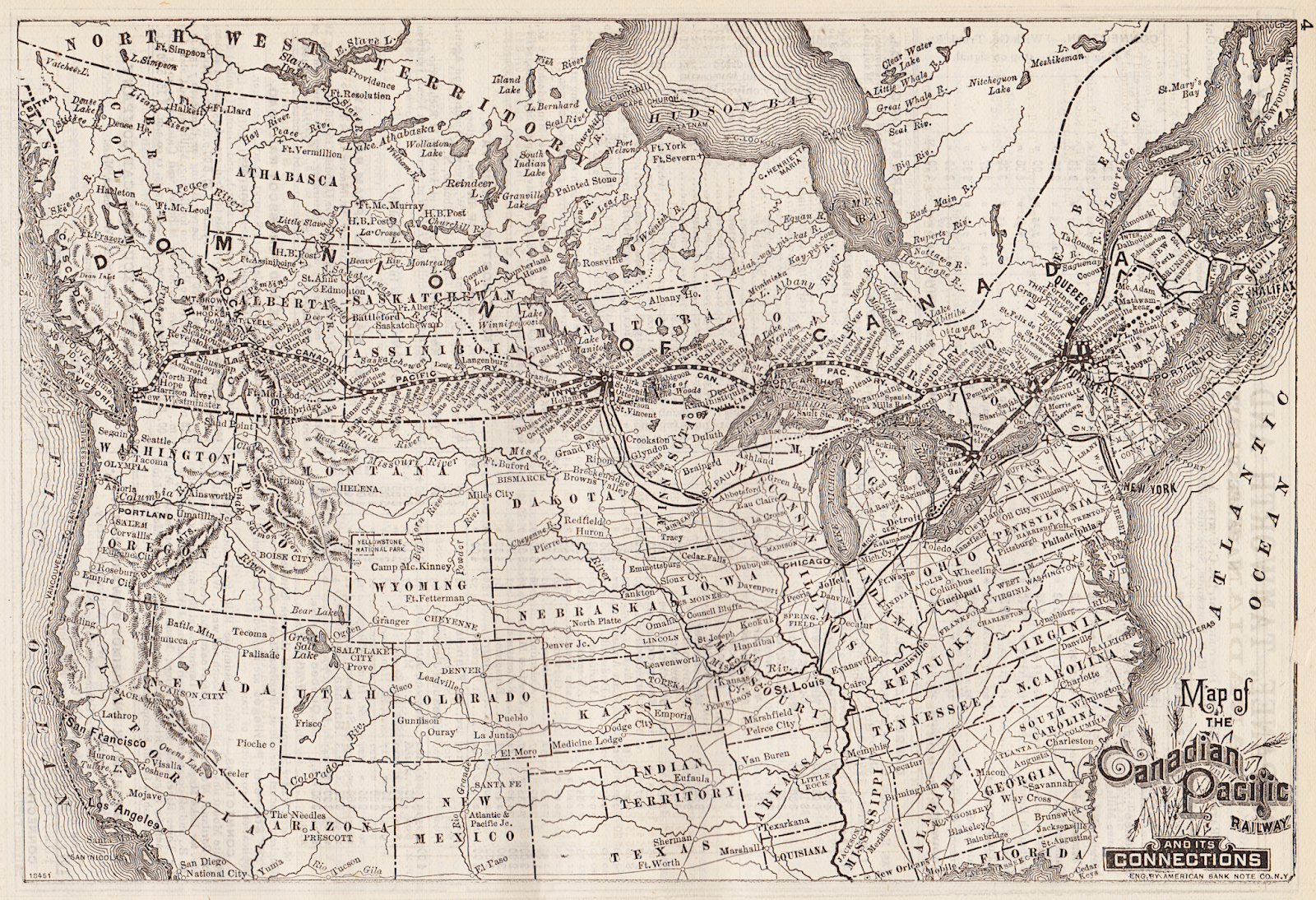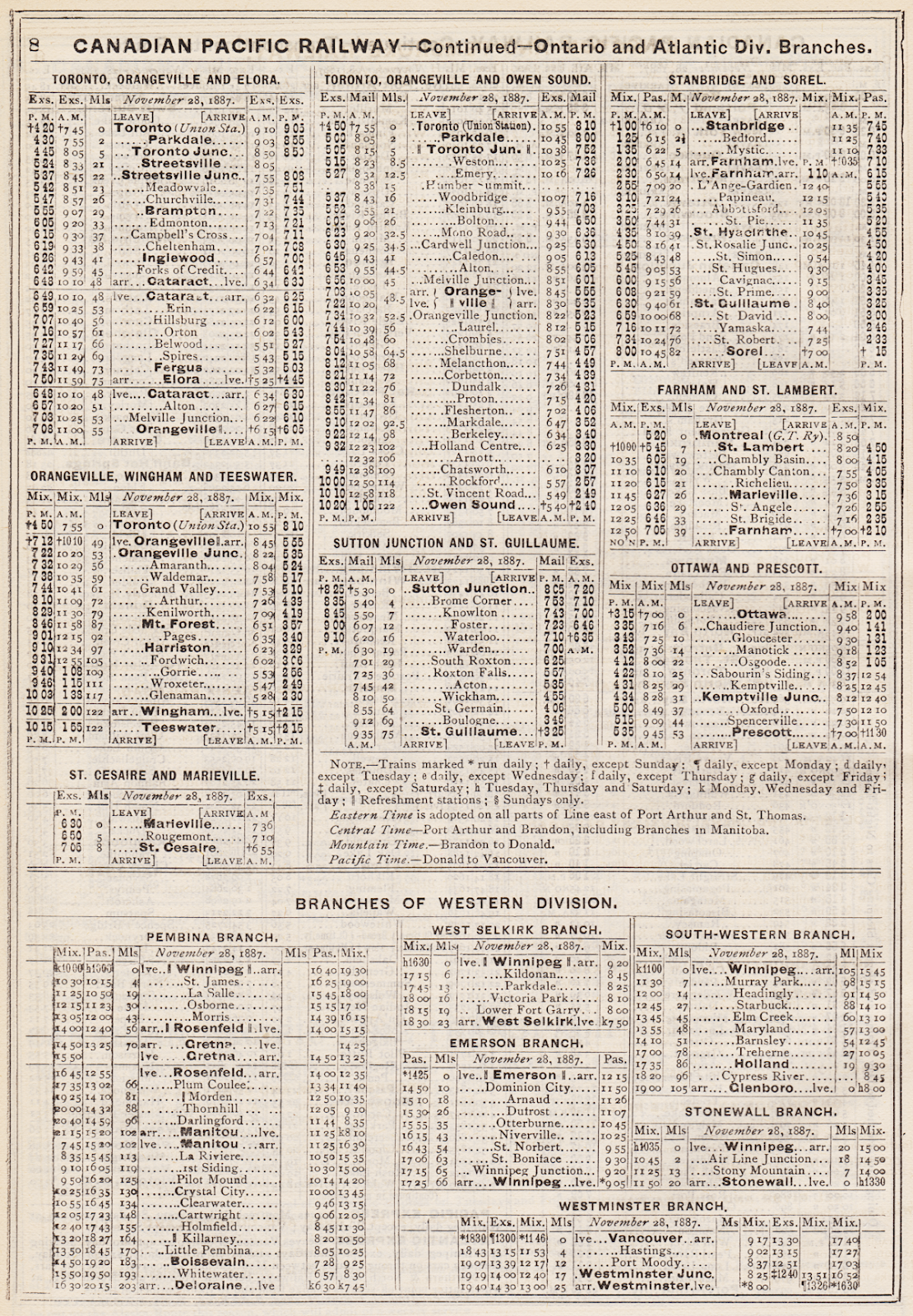Here is a look at the CPR not long after it began to operate as a Quebec City to Vancouver system.
Some of the pages did not scan perfectly because the book - as a whole - has 'warped' a little and moderate pressure cannot flatten it. It is hard to complain about its manufacture - so far it has lasted 132 years longer than its publisher intended.
Above, note that North American railroads have adopted 'Standard Time', as have most major cities along their routes. The Prime Meridian Conference in 1884 had paved the way for this innovation across the globe.
A misprinted timetable which showed a '5:35 PM train to Londonderry' departing from a (deserted) station at Bundoran, Ireland in June 1876* had inspired Sandford Fleming to begin to contemplate a better system for officially calculating and communicating time in the age of railways. During that long night at the station, he waited out the 12 hour error until his 5:35 AM train "because, unthinkingly, we double-count the hours of the day and AM can be printed as PM and we're too lazy to count above 12".
* In this year there was a corporate merger, which included the local line, to form the Great Northern Railway (Ireland). Maybe it was in-house corporate chaos after a railway merger and not 'time' which was the problem for Fleming at Bundoran! Maybe the GNR had 'cleverly' fired the Enniskillen and Bundoran Railway's timetable proofreader to benefit from 'synergies'. If Fleming had had a business degree - instead of being an engineer by training - perhaps history would have been different and this silly digression would have been about something else!
You'll notice that no one is currently using (somewhat ironically, considering Fleming's association with a railway of the same name) Intercolonial Time for trains.
And Navigators Time matches GMT/UTC/Z (Zulu) Time.
And Navigators Time matches GMT/UTC/Z (Zulu) Time.
Below, you'll notice that times shown in boldface are PM.
... be careful ... they spelled 'Schreiber' wrong !








